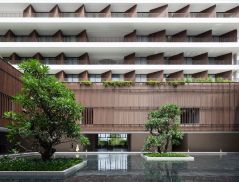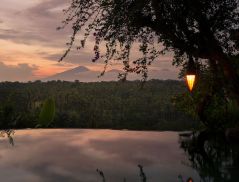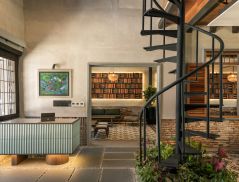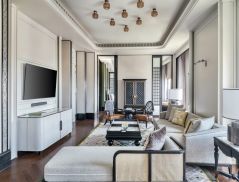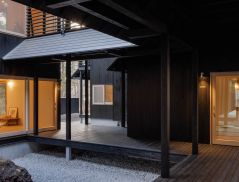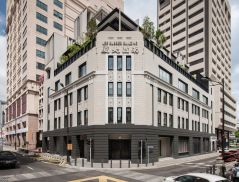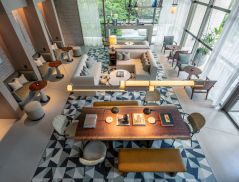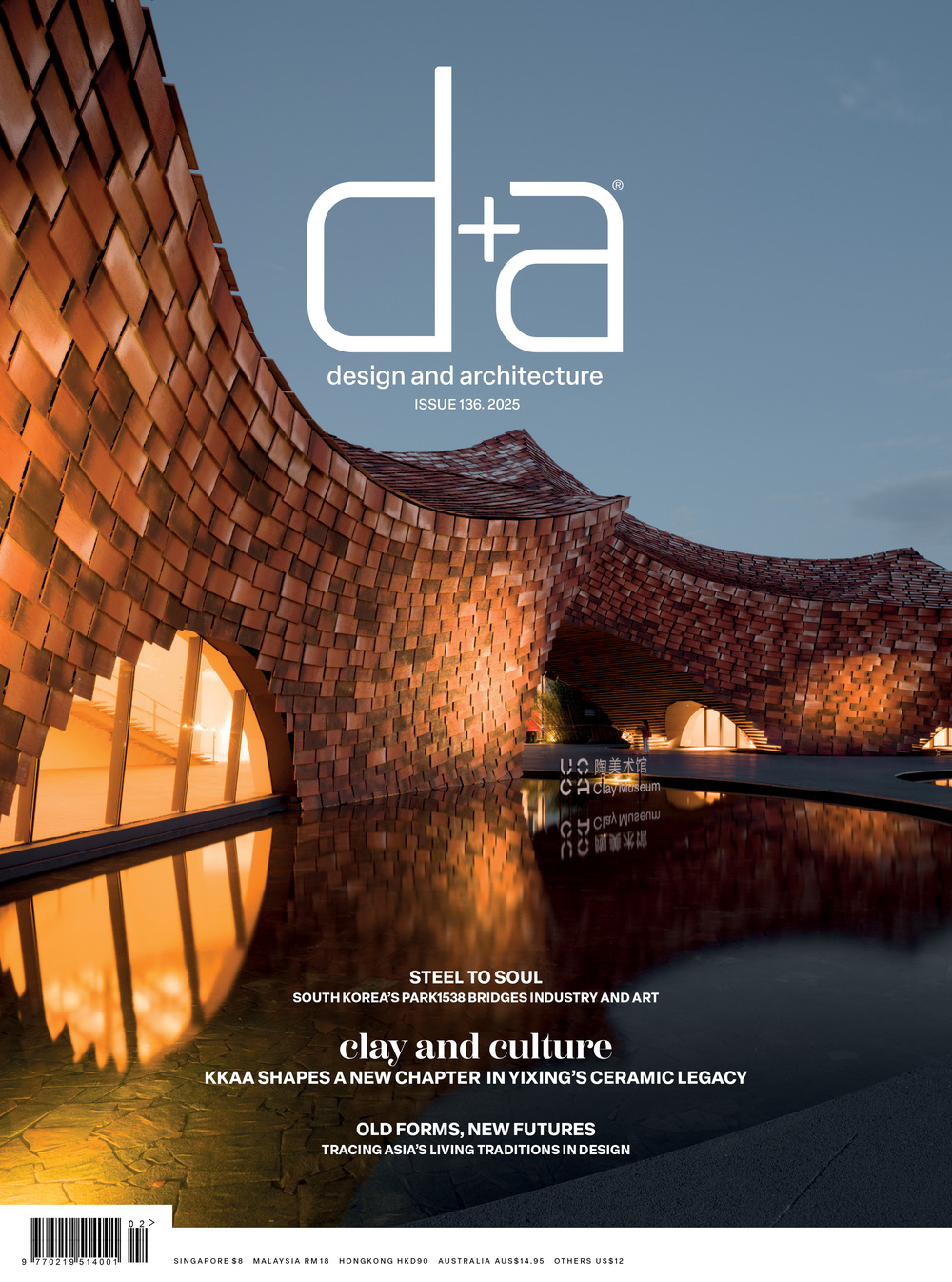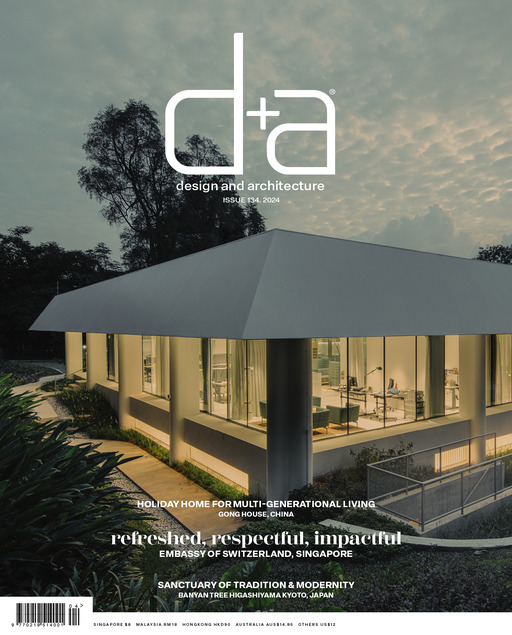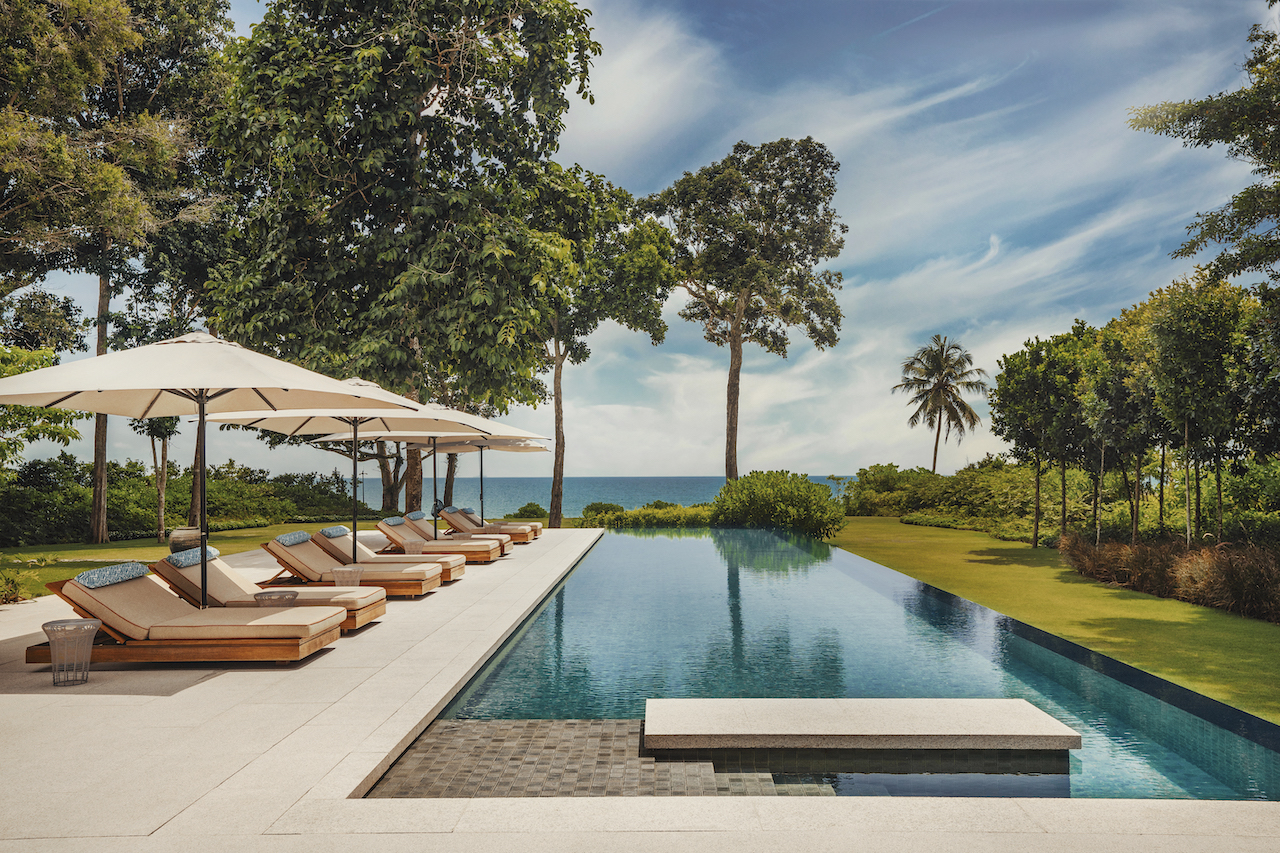
One&Only Desaru Coast in Johor, Malaysia, is nestled amid 128 acres of unspoilt greenery that hugs a pristine coastline facing the South China Sea.
Renowned Singapore and Australia-based architects Kerry Hill Architects designed this luxurious resort that evokes the ambience of a Malaysian ‘kampung’ or village, but with a contemporary aesthetic.
Completed under the One&Only brand in 2020, the tropical retreat is home to over 80 species of flora and fauna. When designing the resort, Kerry Hill Architects preserved as much of the surrounding forest as possible. They built around existing trees, which then became natural design features. It was considered a challenge given the dense nature of the jungle in Desaru.
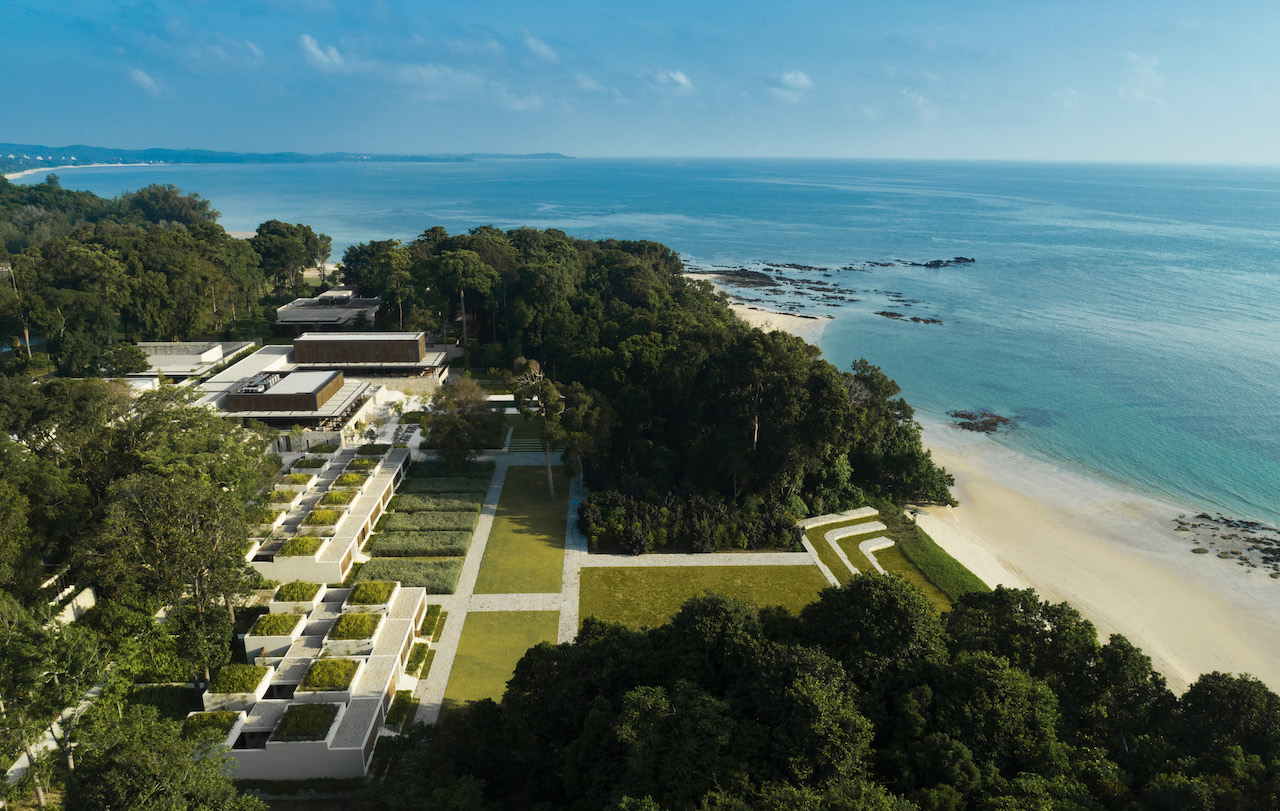
“The resort is designed as an escape from the city, where nature is woven into every aspect of the experience, from the planted green roofs to the rainforest-framed walkways,” says Justin Hill, director of Kerry Hill Architects.
The arrival and reception area in the main building opens to a central courtyard, flanked by main restaurant Ambara on the one side, while Hoshi Japanese restaurant and Dusky Monkey bar are on the other – this curated ensemble makes up the heart of the reimagined ‘kampung’.
“At the main lodge zone, the cascaded building allows for separate F&B venues to efficiently operate together thanks to invisible back of house connections. Our guests can experience a completely different environment in these venues although they are not too far from each other. The hotel is a success of layered functions and buildings that define the seamless transitions in perfect harmony with the plot,” says Hakan Ozkasikci, executive vice president of global design and technical services of Dubai-based Kerzner International, an independent developer and operator of private residences and luxury resorts including One&Only.
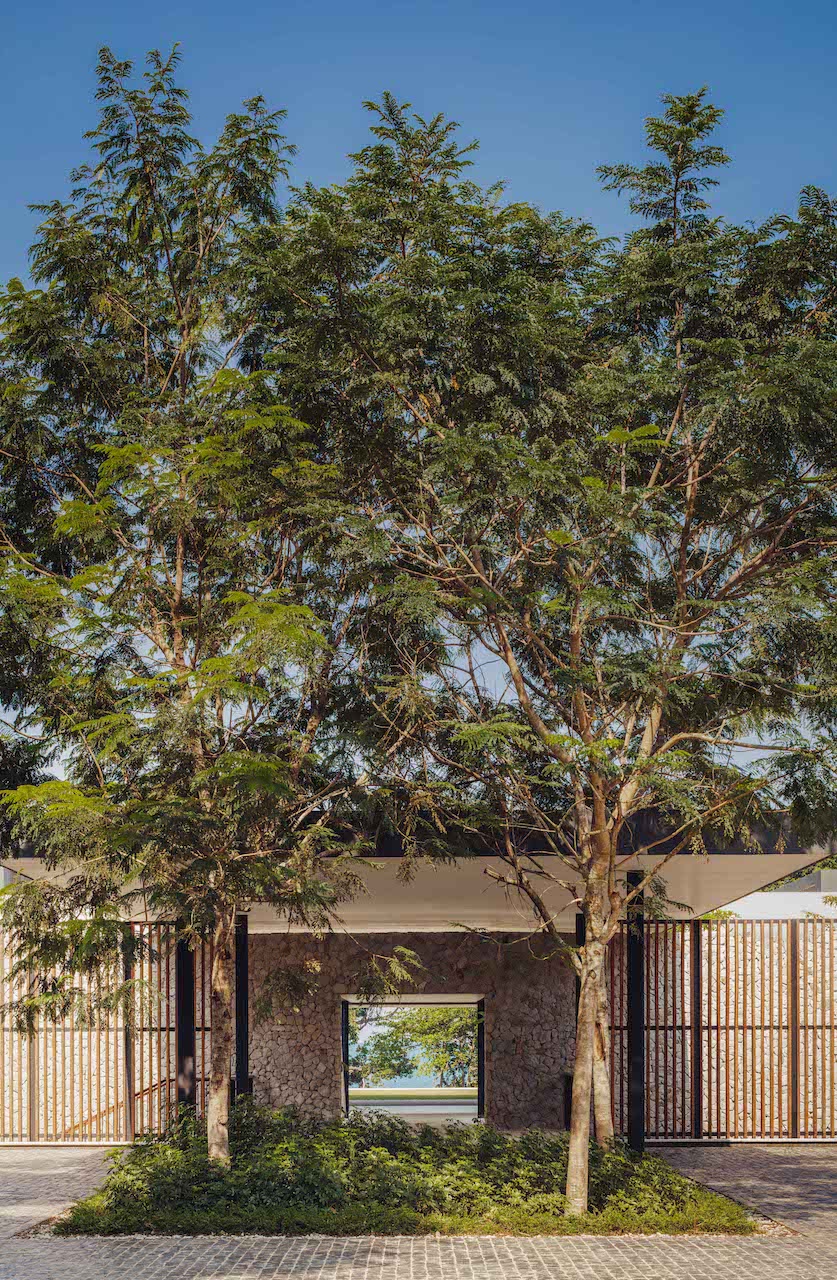

The steps from this open ‘courtyard’ descends to the pool area whose infinity pool overlooks lush foliage and the sea. For the existing nature and surroundings to guide the design, Ozkasikci says that the architects had to “open a window to the ocean to be able to see the horizon from the infinity pool, and we had to do this responsibly.”
He adds, “The property maintains the ability to surprise as there are gaps through the foliage that allow the perception of the sea beyond, but it does not really give away what lies ahead. This makes these limited views all the more valuable as one needs to advance towards the beach and go through the ‘green wall’ to appreciate the views, and the serene architecture becomes the view on the reverse journey.”
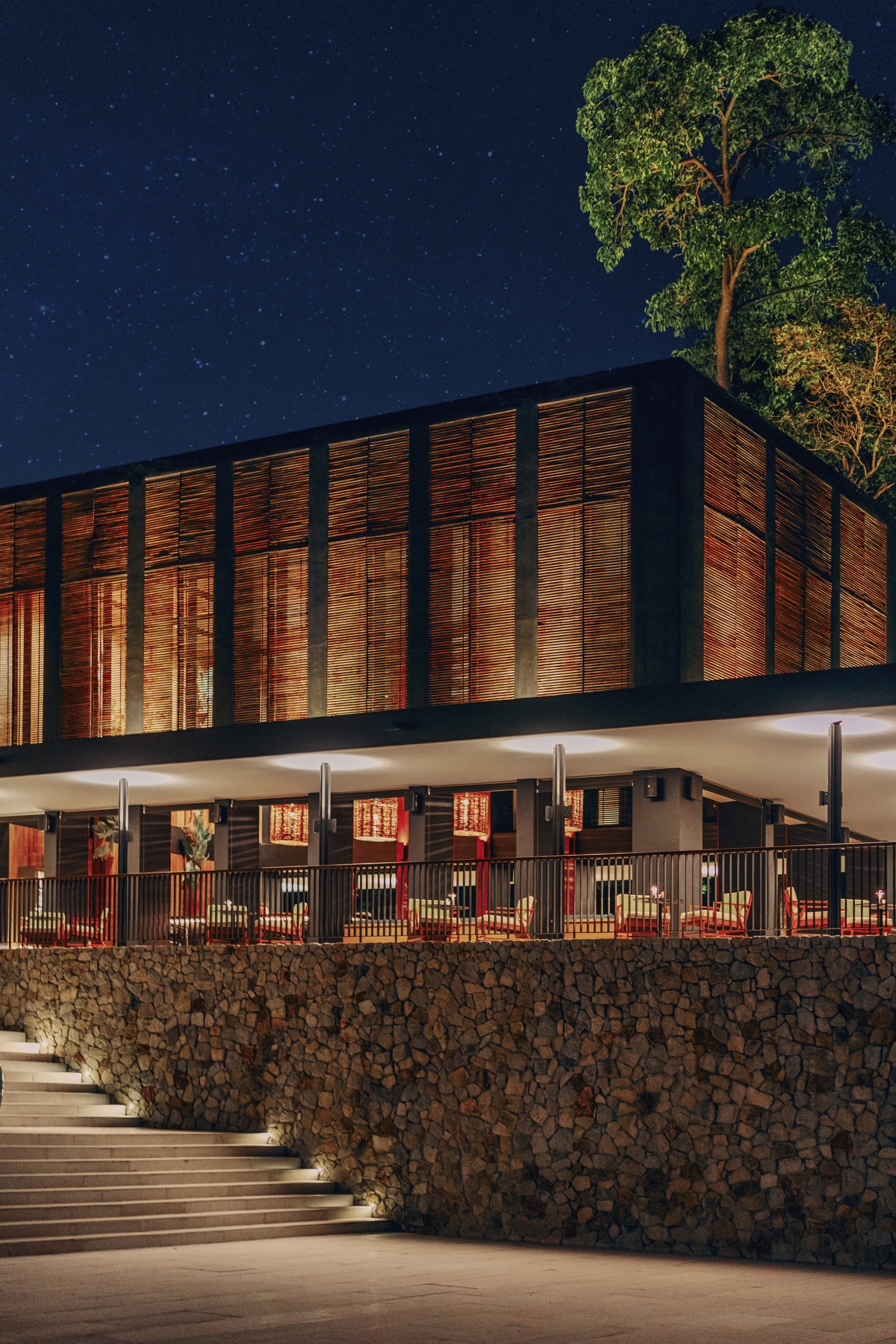

Meanwhile, the resort’s timber-clad buildings are separated by courtyards, trees and gardens. Sand coloured stone walls, platforms and walkways are enveloped within mature banyan, penaga laut and jambu laut trees to further connect with nature.
Natural air ventilation is provided in accordance with the careful massing as the air flow is not blocked by the buildings. “The canopies and perforated façade elements direct and deflect the wind, all the while when they provide proper shading,” points out to Ozkasikci.
Secluded sanctuary
The Rainforest and Ocean suites are standalone hideaways. “The guest suites bring about a seamless connection with the outdoors, while affording exceptional levels of privacy,” comments Angelo Kritzitios, director at Kerry Hill Architects.
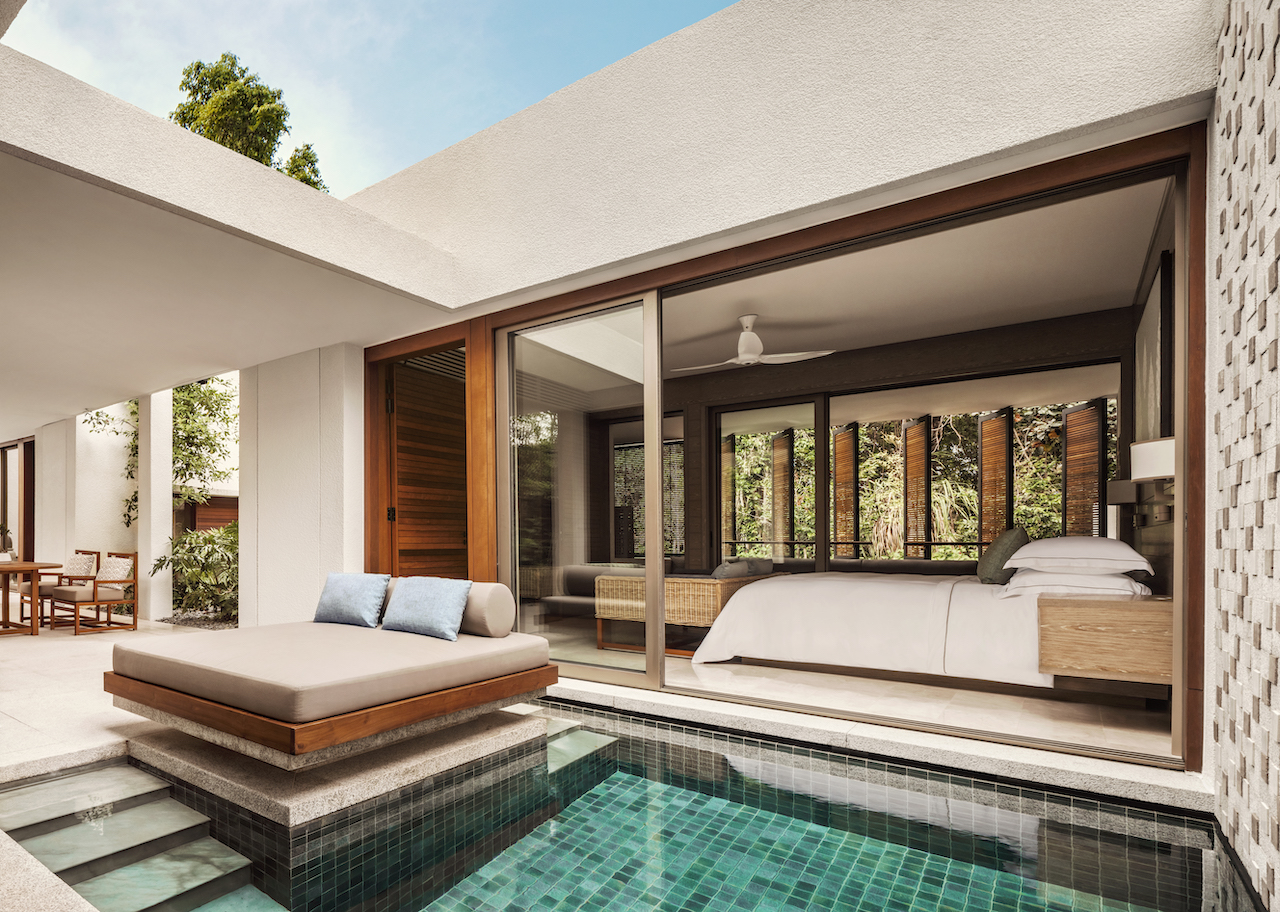
There are pathways to the individual suites that weave through mature trees and abundant foliage. The roofs of every suite are planted with greenery to help cool down the accommodations and lend a layer of lushness to the design.
“The green terrace roofs are indispensable in terms of providing insulation, and the air conditioning systems are not subject to working overtime thanks to the promoted natural air flow as well as soil insulated roofs,” notes Ozkasikci.
Natural materials are seamlessly integrated into the suites, including locally sourced stone, handpicked for its durability, and yellow balau timber from sustainable farms. One&Only Desaru Coast also worked together with local artisans to create bespoke handmade decorative pieces. For instance, the walls of the suites are adorned with handcrafted songket art pieces made with pure silk and patterned with intricate bunga cogan designs – a motif traditionally used by Malaysian royalty. Hand harvested rattan vines from the nearby rainforests are hand-plaited into a check-patterned floor mat. This is inspired by the traditional techniques of Sarawak’s indigenous Penan community.
Design vision for the spa
The Chenot Spa’s unconventional setting pays tribute to a stunning old Banyan tree at the end of a long pond. “The journey through the spa creates a sense of belonging as the guest becomes a part of the whole, and the banyan tree remains as strong memory with its reflection on the water,” says Ozkasikci.
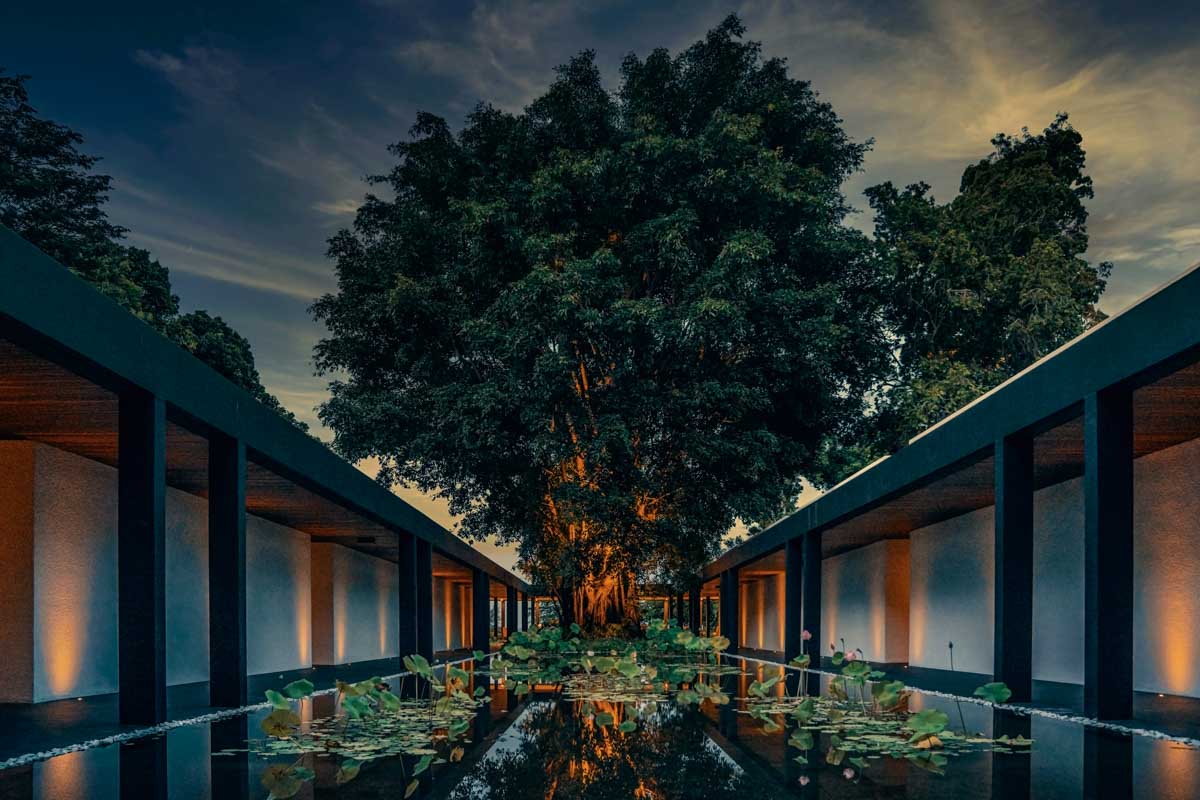
“The treatment rooms are neutral to the internal circulation zone where the long pond sets a dramatic reflection scene which changes as the guests advance towards their dedicated treatment rooms. Again, this is a crafted sequence where the doors of these rooms are not visible from the common circulation area, retaining the element of wonder and surprise. These treatment units open to their private gardens of calm,” he explains. The sense of calm is sustained when guests depart. “The reverse journey offers a similar experience with different sensations, going back into the large transition zone, which has a high volume with dark interiors. I admit this rich and unique experience is theatrical at a subconscious level, as the treatment becomes a part of the story while the transitions between meaningful spaces are vividly remembered unlike many other spas where the built environment has little to add to the overall memory,” opines Ozkasikci.
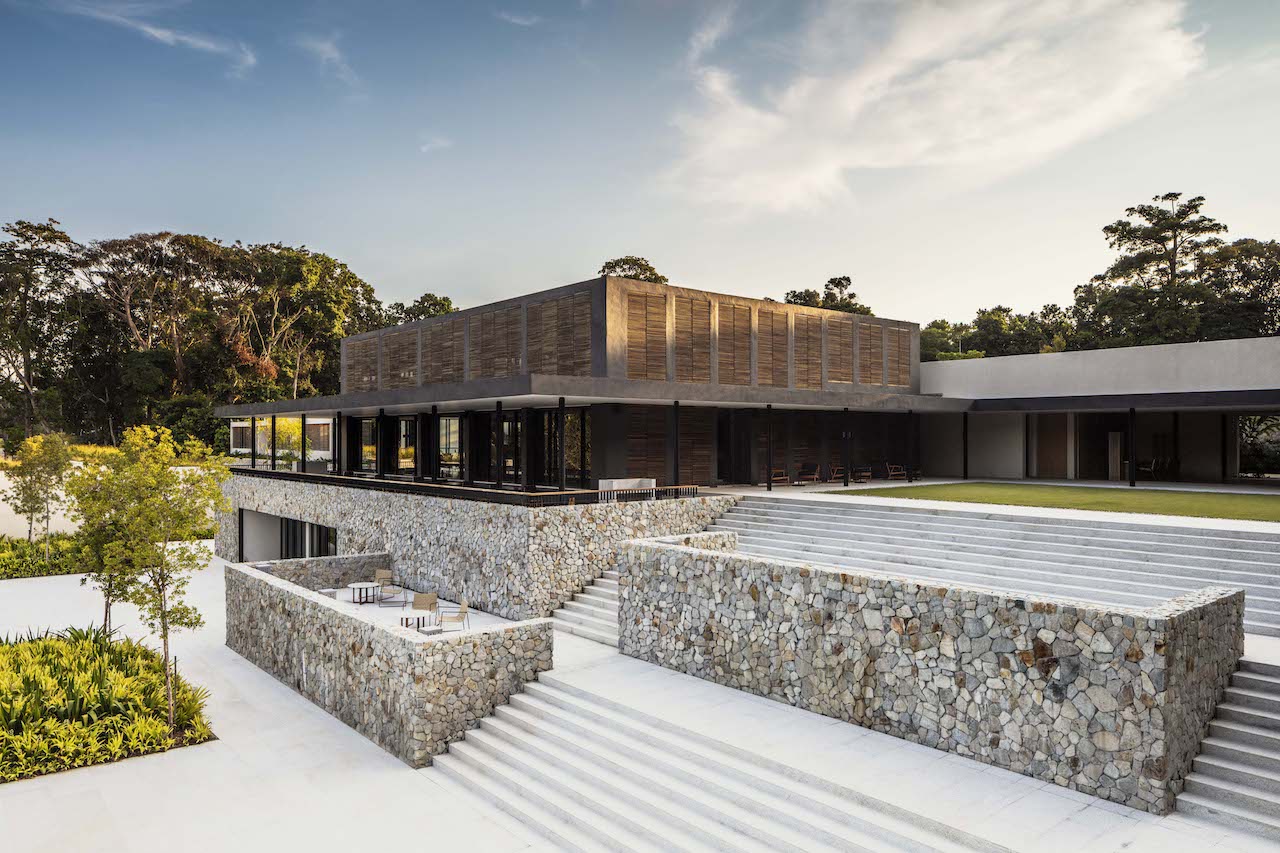
This project in this secluded part of Malaysia is “a celebration of proportionate organic design based on a clean mathematical formula; and this was Kerry Hill’s forte,” says Ozkasikci about the outstanding features of the resort.
“Using the natural materials on the forefront whilst being humble and neutral on building technology, the whole edifice is a very well-balanced setting that one can feel the natural grading of the site that the hotel gently sits on,” says Ozkasikci.


 Share
Share
